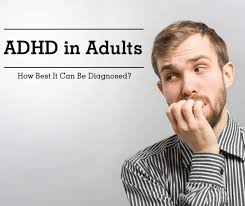Overview
Attention Deficit Hyperactivity Disorder (ADHD) and Anxiety Disorders are two prevalent mental health conditions that often co-occur. Individuals with ADHD frequently experience symptoms of anxiety, and vice versa, leading to significant challenges in daily functioning and overall well-being. Managing these co-occurring conditions requires a comprehensive approach that addresses both ADHD symptoms and anxiety symptoms concurrently. In this article, we will delve into the intricate relationship between ADHD and anxiety, explore the challenges individuals face when managing both conditions, and provide strategies for effectively managing these co-occurring conditions to promote improved mental health.
Knowing About Anxiety and ADHD
The neurodevelopmental disorder known as ADHD is typified by impulsivity, hyperactivity, and inattention. Individuals with ADHD may struggle with maintaining focus, organizing tasks, and controlling impulses, which can significantly impact their academic, occupational, and social functioning. On the other hand, anxiety disorders encompass a range of conditions characterized by excessive worry, fear, and apprehension. Panic disorder, social anxiety disorder, generalized anxiety disorder (GAD), and particular phobias are examples of common anxiety disorders.
The relationship between ADHD and anxiety is complex and bidirectional. Research suggests that individuals with ADHD are at a higher risk of developing anxiety disorders compared to the general population. The chronic stress and difficulties associated with managing ADHD symptoms can contribute to the development of anxiety symptoms. Conversely, anxiety symptoms can exacerbate ADHD symptoms, leading to increased impairments in daily functioning. The overlap in symptoms between ADHD and anxiety, such as restlessness, difficulty concentrating, and irritability, can further complicate diagnosis and treatment.
Challenges in Managing Co-occurring ADHD and Anxiety
Managing co-occurring ADHD and anxiety presents unique challenges due to the interplay between the two conditions. Individuals may experience conflicting symptoms, such as the impulsivity of ADHD clashing with the fear and avoidance behaviors characteristic of anxiety disorders. Additionally, the presence of one condition can mask or overshadow the symptoms of the other, making accurate diagnosis and treatment planning more challenging.
Furthermore, the stigma surrounding mental health disorders can contribute to feelings of shame and inadequacy in individuals with co-occurring ADHD and anxiety. They may struggle to seek help or adhere to treatment recommendations due to fear of judgment or misunderstanding from others. As a result, untreated or poorly managed symptoms can lead to a cascade of negative outcomes, including academic underachievement, impaired relationships, and decreased quality of life.
Effective Strategies for Managing Co-occurring ADHD and Anxiety
Comprehensive Assessment:
A thorough evaluation by a qualified mental health professional is essential for accurately diagnosing and understanding the complexities of co-occurring ADHD and anxiety. This may involve a combination of clinical interviews, self-report questionnaires, and behavioral assessments to identify symptom patterns and functional impairments.
Integrated Treatment Approach:
Treating co-occurring ADHD and anxiety requires an integrated approach that addresses both conditions simultaneously. This may involve a combination of medication, psychotherapy, and behavioral interventions tailored to the individual’s specific needs and symptom severity. Psychostimulant medications, such as methylphenidate and amphetamine-based drugs, are commonly prescribed for ADHD and have been shown to improve symptoms of both ADHD and anxiety in some individuals. However, medication management should be carefully monitored by a healthcare professional to minimize potential side effects and ensure optimal treatment outcomes.
Cognitive-Behavioral Therapy (CBT):
CBT is a well-established psychotherapeutic approach that can be effective in treating both ADHD and anxiety. CBT helps individuals identify and challenge maladaptive thought patterns and behaviors that contribute to their symptoms. For individuals with ADHD, CBT techniques such as time management skills, organization strategies, and problem-solving techniques can help improve attention and impulse control. For anxiety disorders, exposure-based techniques, relaxation training, and cognitive restructuring can help reduce excessive worry and fear.
Stress Management Techniques:
Learning effective stress management techniques can help individuals cope with the daily challenges of living with co-occurring ADHD and anxiety. Mindfulness meditation, deep breathing exercises, progressive muscle relaxation, and yoga are all examples of techniques that can help promote relaxation and reduce physiological arousal associated with anxiety. Regular exercise, adequate sleep, and healthy lifestyle habits are also important for maintaining overall well-being and managing symptoms of both conditions.
Social Support and Education:
Building a strong support network of family, friends, and mental health professionals can provide invaluable emotional support and practical assistance in managing co-occurring ADHD and anxiety. Education about the nature of ADHD and anxiety can help individuals and their loved ones better understand the conditions and develop realistic expectations for treatment outcomes. Support groups and online forums can also provide a sense of community and validation for individuals navigating similar challenges.
In summary
Co-occurring ADHD and anxiety present significant challenges for individuals seeking to manage their mental health effectively. However, with a full assessment, integrated treatment strategy, and support from mental health specialists and loved ones, individuals can learn to effectively manage their symptoms and improve their overall quality of life. By addressing both ADHD and anxiety simultaneously and using practices that promote self-care and stress management, individuals can grow resilience and attain higher mental well-being.
In summary, controlling co-occurring ADHD and anxiety involves a holistic strategy that understands the intricate interplay between the two diseases and serves the particular needs of each individual. With appropriate treatment and support, individuals can learn to navigate the obstacles of living with co-occurring ADHD and anxiety and thrive in their personal and professional life.
